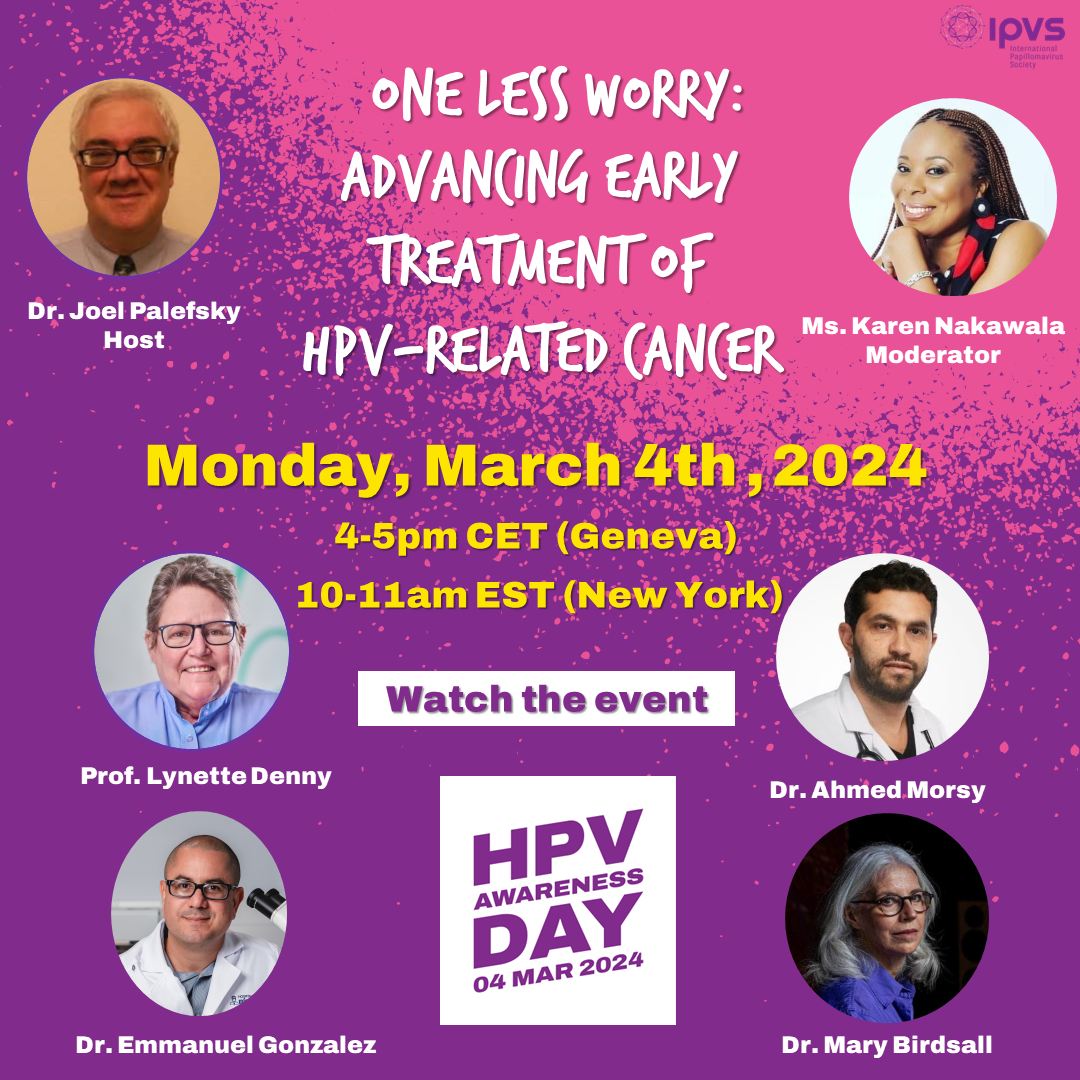High-Level Panel Event on IHAD: One Less Worry – Advancing early treatment of HPV related cancer.
04.03.2024 - 04.03.2024 Virtual event Policy

04
Mar 2024
Each year roughly 600,000 people across the world are diagnosed with one of the six identified types of HPV-related cancer. Early identification and access to treatment is critical to save lives for all types of HPV-related cancers.
The WHO Global Strategy for Elimination of Cervical Cancer sets out three pillars of vaccination, screening and treatment to achieve effective elimination of cervical cancer by 2030. A specific target to have 90% pre-cancers treated and 90% of invasive cancers managed has been set. But access to early diagnosis and treatment for cervical and indeed other HPV related cancers is perhaps the most complex of all the pillars to deliver, with relatively high levels of technical and workforce investment required. With HPV related cancer mortality highest in those countries facing significant healthcare system challenges, what are the strategies that can be used to deliver on the global commitment to treatment access?
Join the conversation with our global panel of experts as we discuss strategies and priorities to improve screening and prevention of HPV-related cancers.
Each year roughly 600,000 people across the world are diagnosed with one of the six identified types of HPV-related cancer. Early identification and access to treatment is critical to save lives for all types of HPV-related cancers.
The WHO Global Strategy for Elimination of Cervical Cancer sets out three pillars of vaccination, screening and treatment to achieve effective elimination of cervical cancer by 2030. A specific target to have 90% pre-cancers treated and 90% of invasive cancers managed has been set. But access to early diagnosis and treatment for cervical and indeed other HPV related cancers is perhaps the most complex of all the pillars to deliver, with relatively high levels of technical and workforce investment required. With HPV related cancer mortality highest in those countries facing significant healthcare system challenges, what are the strategies that can be used to deliver on the global commitment to treatment access?
Register now to participate in this interactive discussion in commemoration of International HPV Awareness Day on March 4th, 2024
Confirmed Host, Moderator and Panelists
Host: Dr Joel Palefsky, International HPV Awareness Campaign Chair, UCSF
Moderator: Karen Nakawala, Zambian Broadcaster, Cervical Cancer Survivor and Founder of Teal Sisters
Panel
- Mary Birdsall, gynaecologist, HPV related cancer survivor and founder of the Anal Cancer Support Service Aotearoa/New Zealand
- Prof Lynette Denny, University of Capetown (screening and treatment low-resource early treatment interface between systems and community)
- Dr Emanuel Gonzalez, Oncology Pathologist, Hospital San Rafael Arcángel, Liberia, Costa Rica
- Dr Ahmed Morsy, Executive Director of Presidential Women’s Health Initiative and Executive Director of Presidential Cancer Early Detection and Management Initiative in Egypt
Topics to discuss:
- WHO has set out a target of 90% of women achieving treatment for cervical cancer by 2030. How will we get there?
- What are the specific challenges around delivering equitable treatment for HPV related cancer?
- Along with cervical cancer, HPV is responsible for several other cancers that together account for 1 in 20 cancer diagnoses and close to half a million deaths each year globally. How can we make progress towards equitable outcomes for patients for people with these other forms of cancer? What should we prioritize?
- What role can an HPV awareness campaign play in advancing equitable access to treatment for HPV related cancers?
Event Start Time
Event start: 4:00PM on 04.03.2024
Event finish: 5:00PM on 04.03.2024
Event Contact
E .(JavaScript must be enabled to view this email address)
https://askabouthpv.org

